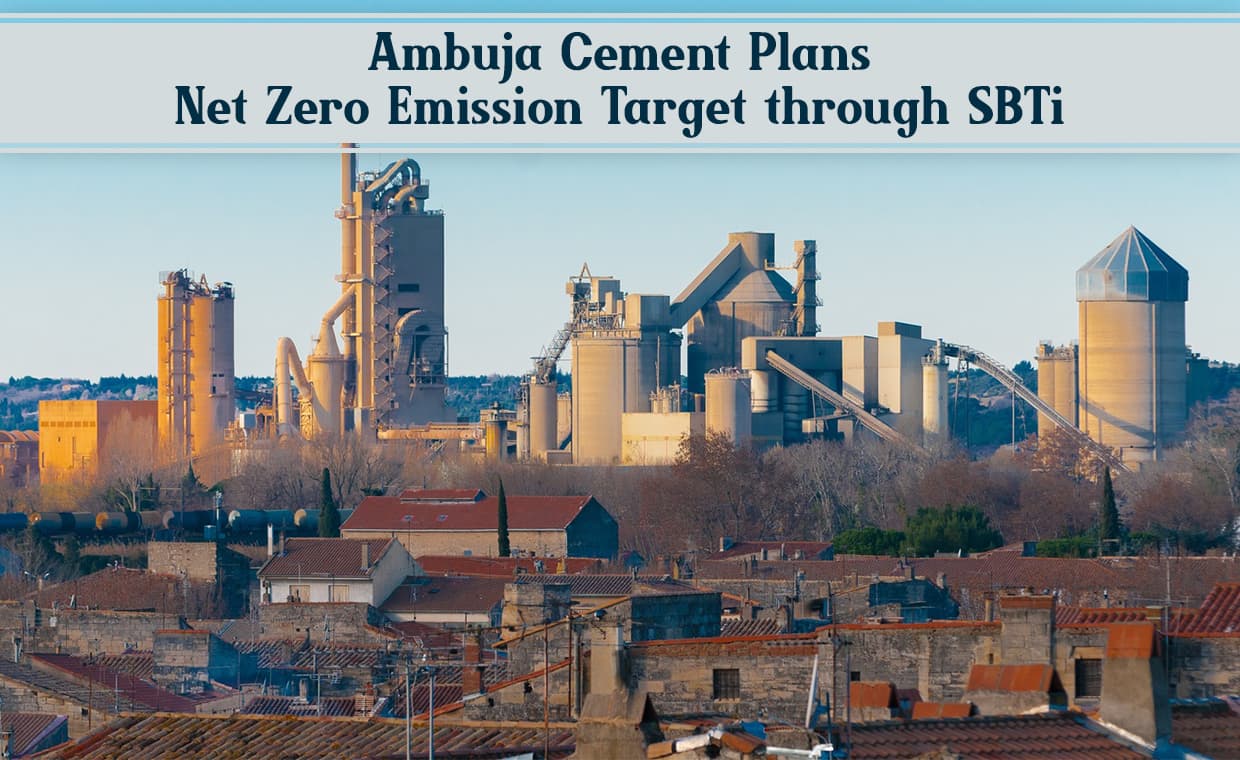
Ambuja Cements Limited has developed and got validated its 2030 carbon emission reduction targets by the Science-Based Targets initiative (SBTi) aligned with the reductions required to limit global warming to well below 2°C.
Ambuja Cements Plans Net Zero Emissions
The company has signed the “Business Ambition for 1.5°C” pledge, joining the Race to Zero campaign of the United Nations Framework Convention on Climate Change.
About Ambuja Cements plans net zero-emission, the press release stated that Ambuja Cement commits to reduce Scope 1 and Scope 2 GHG emissions by 21% per ton of cementitious materials by 2030 from a 2020 base year. With this target, Ambuja Cement commits to reduce scope 1 GHG emissions by 20% per ton of cementitious material and scope 2 GHG emissions by 43% per ton of cementitious materials in this timeframe.
“At Ambuja Cement, we are constantly dedicated and invested towards sustainable development and aim to include sustainability in all operational and project planning. With SBTs developed and validated, Ambuja Cement has now joined the group of global companies promoting an ambitious low carbon economy model for the industry. Being part of the Holcim group and one of the pioneers in the Indian Cement industry, we have taken another step towards strengthening our Climate Change adaptability by joining the Race to Zero. Ambuja Cement will continue to implement such best practices and adopt continuous improvement initiatives to achieve our business vision “To be the most competitive and sustainable company in our industry”, said Neeraj Akhoury, MD & CEO, Ambuja Cements Limited and CEO India, Holcim.
With these targets, Ambuja Cement commits to reduce its CO2 intensity in cement operations from 531 kg in 2020 to 453 kg net CO2 per ton of cementitious material by 2030.
In line with the parent company Holcim Group’s Net-Zero Pledge, Ambuja has taken several measures to reduce CO2 emissions, such as reducing the clinker factor, improving Thermal Substitution Rate, reducing Thermal and Electrical Energy intensity, implementing Waste Heat Recovery System, and increasing the capacity of renewable energy generation, and introducing new technologies, stated the release.
The Science Based Targets initiative (SBTi) is a collaboration between CDP, the United Nations Global Compact, World Resources Institute (WRI) and the World Wide Fund for Nature (WWF).
Author Bio
Bhakti






























